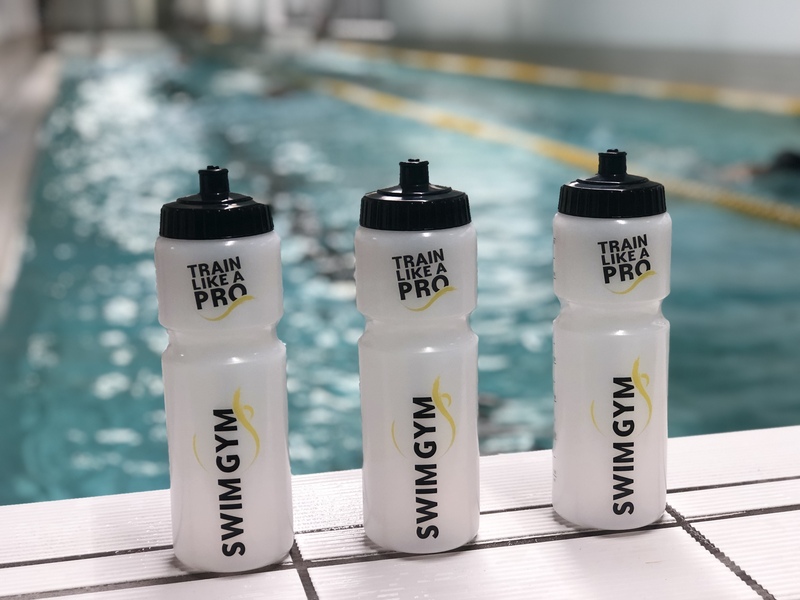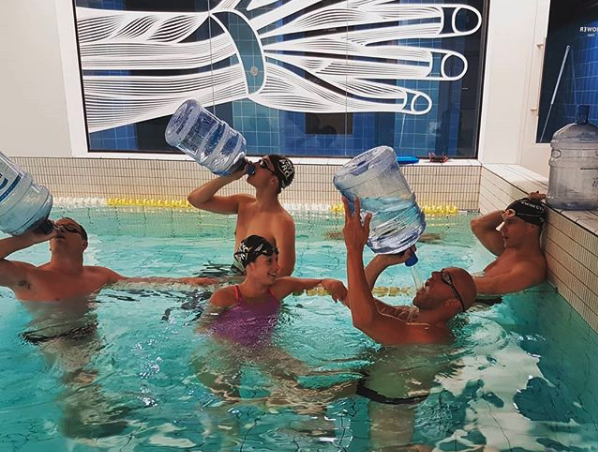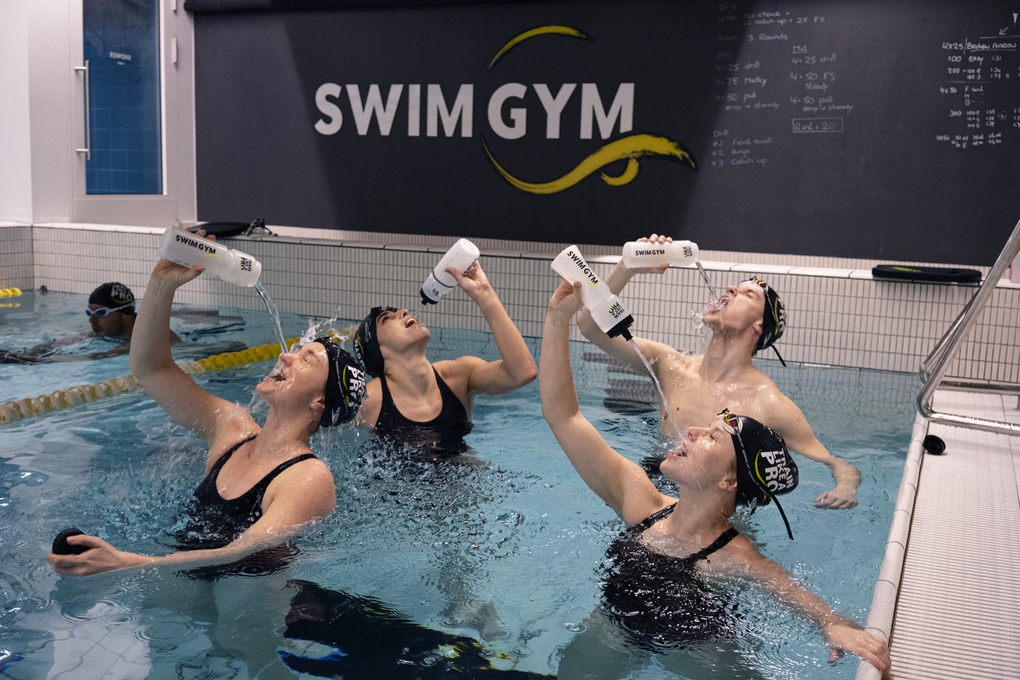Swimming blog - TRAINING and HEALTH WHY YOU SHOULD HYDRATE DURING A SWIM WORKOUT
It’s a common misconception that you aren’t in need of hydration during your swim practice since you don’t notice how much you sweat in the pool. Indeed, you sweat less in comparison to non-water sports, but there are a few very good reasons why you should hydrate while swimming, and we have listed them for you.
Our body needs water to survive. Every cell, tissue, organ is in need of it to work properly. Water is used to carry nutrients to our cells for energy, to flush waste from our body, to prevent constipation, to maintain body temperature and much more. It’s therefore no surprise that water is crucial for your overall well-being.
During exercise there is more need for water since more fuel is being used, more waste is being produced and there is a rise in the body temperature. Sweating is your body’s natural response to release heat produced from exercise. If you don’t drink enough, your body may become overheated, and this could impact your health and performance.
The humidity and cold temperature of water also cools the body down so you sweat less. However, you still dehydrate due to the high muscle activity during swimming. You just don’t realize it. So fill up your water bottle and read our three main reasons to stay hydrated in the pool.

1. Better muscle function
The muscles used for swimming are in need of more oxygen and energy. Oxygen and nutrients that are used as energy are all transported to these muscles by blood. Blood is mostly made out of water, therefore being hydrated is essential for this transportation to happen effectively and for the muscle to function correctly.
2. Faster recovery
During a swim session the muscles use nutrients for fuel which produces waste, usually there is also some muscle damage present. Muscles need enough water and nutrients to repair properly after a workout. Nutrients for recovery and refueling are transported by blood. Likewise, the produced waste is removed from muscles through blood. Enough water is needed for these processes to work properly, which reduces muscle soreness and fatigue after a swim session. Being hydrated is therefore important for any swimmer.
3. Cramp prevention
Walking, biking and swimming is possible because of muscle contraction. Exercise requires muscles to work harder and therefor contract at a greater intensity. Whenever the water concentration is low inside of a muscle, the contraction becomes disrupted which can lead to muscle cramp. Obviously, this affects your performance immediately. Drinking enough would therefor reduce the likelihood of suffering from these cramps.
A good hydration state is thus necessary to perform and recover optimally.

The strategy to achieve this:
- Start the day off right by drinking 2 glasses of water after waking up.
- Two hours before your swim session you should consume 2 glasses of liquid.
- You should drink at least one glass or bottle of water for every hour of swimming.
- To know your hydration state, you can check the color of your urine which should be clear/slightly yellow. If it is any darker, consider taking in some extra liquid throughout your day and during your swim sessions.
But what should be in the bottle you might ask? Water is a great choice however we lose minerals while sweating/peeing. Therefore, we would recommend taking a sports drink containing at least some carbohydrates. More on this in a future post.
Make hydration a habit and always bring your water bottle to swim practice, your performance will benefit from it!
Cheers!
